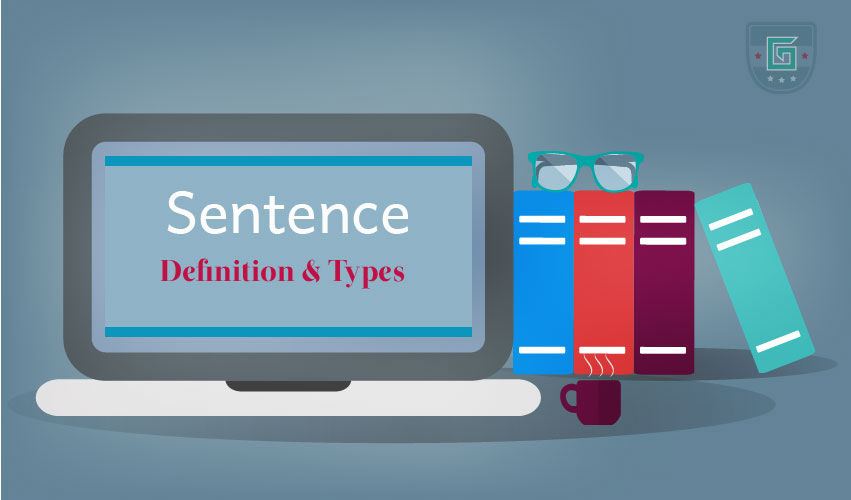Definition of Simple Sentences in English Grammar

Asentence is the largest unit of any language. In English, it begins with a capital letter and ends with a full-stop, or a question mark, or an exclamation mark.
The sentence is generally defined as a word or a group of words that expresses a thorough idea by giving a statement/order, or asking a question, or exclaiming.
Example:
He is a good boy (statement), Is he a good boy? (question), What a nice weather! (exclaiming).
Ideally, a sentence requires at least one subject and one verb. Sometimes the subject of a sentence can be hidden, but the verb must be visible and present in the sentence. Verb is called the heart of a sentence.
Example:
Do it. (In this sentence, a subject 'you' is hidden but verb 'do' is visible)
"[A sentence is] a group of words, usually containing a verb, that expresses a thought in the form of a statement, question, instruction, or exclamation and starts with a capital letter when written." - (Cambridge Advanced Learner's Dictionary & Thesaurus © Cambridge University Press.)
More Examples of Sentences
In other words, a complete English sentence must have three characteristics:
- First, in written form, a sentence begins with a capital letter and ends with a period (i.e., a full stop) [.], a note of interrogation (i.e., a question mark) [?], or a note of exclamation (i.e., an exclamation mark) [!].
- Second, it must express a complete thought, not fragmented.
- Third, it must contain at least one subject (hidden/visible) and one verb comprising an independent clause. (An independent clause contains an independent subject and verb and expresses a complete thought.)
Types of Sentences
Structurally, sentences are of four types:
- Simple sentence
- Compound sentence
- Complex sentence, and
- Compound-complex sentence.
Simple sentence
Asimple sentence must have a single clause (a single verb) which is independent, and it cannot take another clause.
Example:
I always wanted to become a writer. (One clause – one verb)
Compound sentence
Acompound sentence must have more than one independent clause with no dependent clauses. Some specific conjunctions, punctuation, or both are used to join together these clauses.
Example:
I always wanted to become a writer, and she wanted to become a doctor. (Two independent clauses – two verbs)
Complex sentence
Acomplex sentence also has more than one clause but of one them must be an independent clause and the other/others must be (a) dependent clause(es). There are also some particular connectors for the clauses of a complex sentence to be connected.
Example:
I know that you always wanted to be a writer. (Here, a dependent clause is followed by a connector and an independent clause. The other way around is also possible.)
More Complex Sentence Examples
Compound-complex sentence
Acompound-complex sentence (orcomplex–compound sentence) is a mixture of the features of compound and complex sentences in one sentence. So, it must contain at least two independent clauses and at least one dependent clause.
Example:
I know that you always wanted to become a writer, but I always wanted to become a doctor. (Here, one dependent clause is followed by a complex connector and two independent clauses with a compound conjunction between them.)
Functionally, sentences are of mainly four types:
- Declarative sentence
- Imperative sentence
- Interrogative sentence, and
- Exclamatory sentence
Declarative sentence:
Anassertive sentence (declarative sentence) simply expresses an opinion/feeling, or makes a statement, or describes things. In other words, it declares something. This type of sentence ends with a period (i.e., a full-stop).
Examples:
- I want to be a good cricketer. (a statement)
- I am very happy today. (a feeling)
More Examples of Declarative Sentence
Imperative sentence:
We use an imperative sentence to make a request or to give a command. Imperative sentences usually end with a period (i.e., a full stop), but under certain circumstances, it can end with a note of exclamation (i.e., exclamation mark).
Examples:
- Please sit down.
- I need you to sit down now!
More Examples of Imperative Sentence
Interrogative sentence:
Aninterrogative sentence asks a question. Interrogative sentences must end with a note of interrogation (i.e., question mark)
Examples:
- When are you going to submit your assignment?
- Do you know him?
More Examples of Interrogative Sentence
Exclamatory sentence.
Anexclamatory sentence expresses overflow of emotions. These emotions can be of happiness, wonder, sorrow, anger, etc.
Examples:
- What a day it was!
- I cannot believe he would do that!
More Examples of Exclamatory Sentence
Definition of Simple Sentences in English Grammar
Source: https://www.learngrammar.net/english-grammar/sentence-definition-n-types